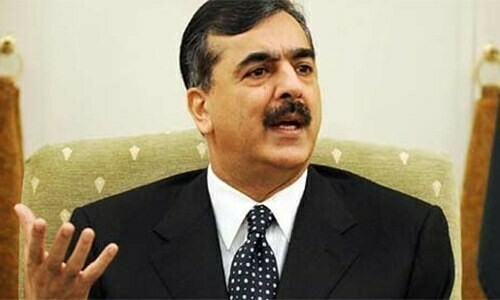ISLAMABAD: Pakistan has for the first time formulated a comprehensive and inclusive national security policy.
This was stated by a representative of the National Security Division, Hassan Akbar, at an event, “Young researchers’ convention on the reconstruction of Pakistan’s national security roadmap” organised by the Centre for Strategic and Contemporary Research (CSCR) at a hotel.
Around 50 experts, young researchers and practitioners from various think-tanks, NGOs, policy institutions and universities were invited for discussion on three themes: regional connectivity as a stabiliser of neighbourly ties, new dimensions of security and climate action and sustainable development strategies.
Mr Akbar talked on “Beyond hackneyed clichés: security policy making in the 21st century” About the process to formulate the national security policy, he said it took Pakistan almost seven years to formulate the umbrella document in which all stakeholders and institutions were on board.
UNDP representative Ammara Durrani stressed the importance of women’s inclusion in the economy and said Pakistan policy documents needed to be in line with global and human development.
Dr Ahmed Waqas Waheed from the Centre for International Peace and Stability, Nust, stressed the importance of indigenous knowledge production and placing less reliance on discourse that was constructed in foreign media and publications.
CSCR Executive Director Anas Abdullah said the motivation behind the idea of the research convention was to cater to the brightest young thought leaders and chart a direction using their suggestions to find confluence of the economic, climate and social domain with the larger national security paradigm.
According to a statement, the panelists of a working committee on the new security dimensions discussed the importance of adopting integrated approach to holistic policy making and implementations that balanced both traditional and non-traditional security threats.
They also stressed the need for institutional demarcation on national security issues to avoid overlaps and confusion at the institution level and to develop a cyber strategy and digital literacy roadmap which included actionable strategies to be perused by state organs.
The speakers of a working committee on the climate action and sustainable development goals discussed the urgent need to educate the citizens about the phenomena of climate change and challenges that Pakistan was facing. They argued that the government should involve all sectors, including private, government, business and civil, to implement climate action strategies.
Published in Dawn, January 7th, 2022














































Dear visitor, the comments section is undergoing an overhaul and will return soon.